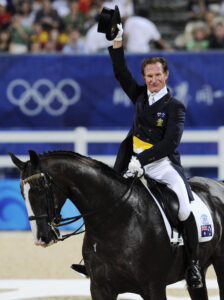40 Years Later, Andy Bell Is Still Lifting People Up
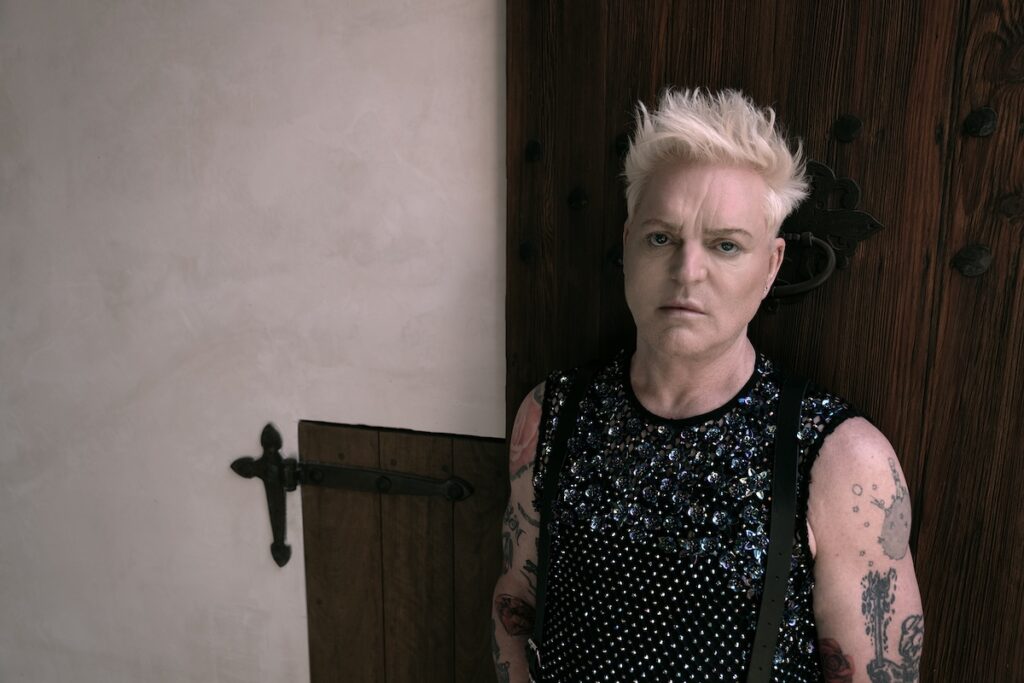
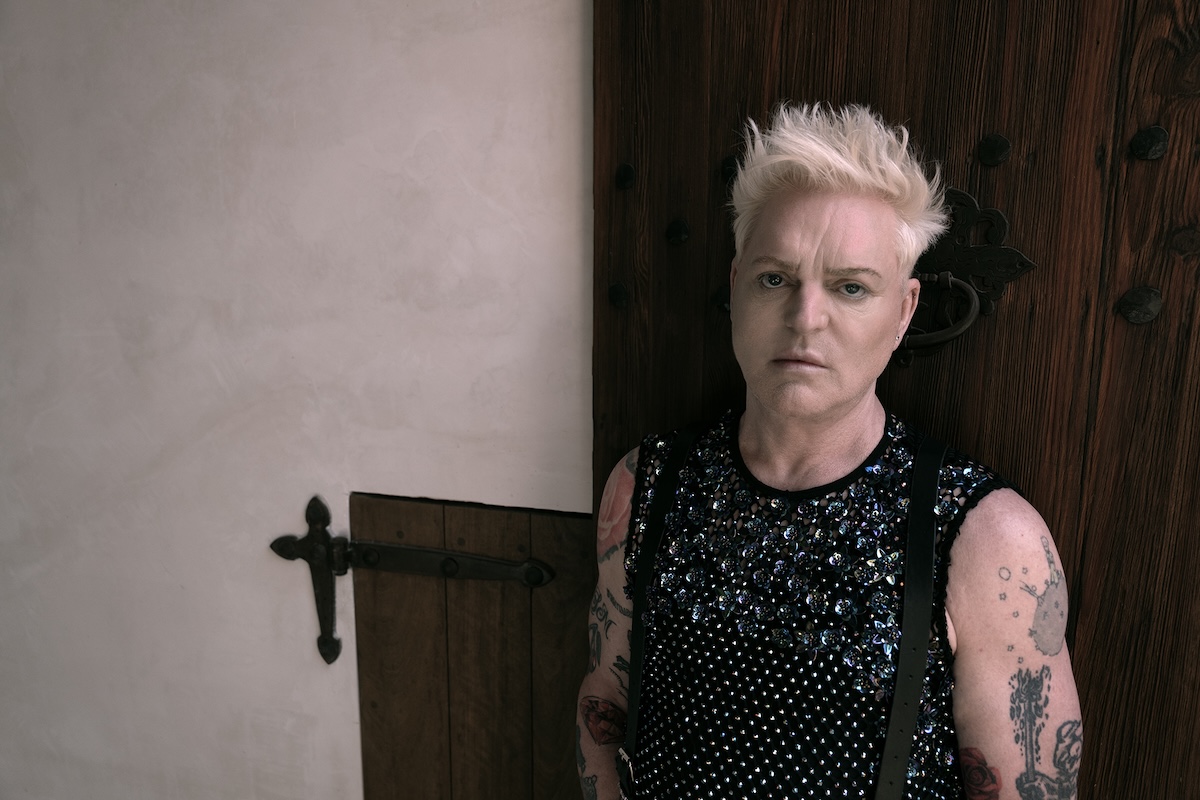
Earlier this month at the airport, Erasure’s irresistible earworm “A Little Respect” drifted through the departure lounge, subtly lifting the mood of weary travelers. I mention this to Andy Bell, the synth-pop duo’s magnetic frontman, whose third solo album Ten Crowns arrives May 2. He isn’t surprised. After decades of success, Bell is used to hearing his music piped into all kinds of spaces. The joyous spirit of Erasure’s synth-pop has long made it a fixture in the sonic wallpaper of public life.
Bell’s solo work radiates a similar energy, and Ten Crowns is no exception. Recorded in Nashville with producer, remixer, and DJ Dave Audé, the album leans into their shared flair for filling dancefloors. Together they have already notched two No. 1s on Billboard’s Dance Club Songs chart with “True Original” and “Aftermath (Here We Go).” Ten Crowns builds on that momentum. It’s a high-voltage record shot through with hints of gospel, perhaps absorbed from its Southern surroundings, and from Bell’s own roots.
More from Spin:
- Shrouded in Grief: A Conversation with David Cronenberg
- Circle Jerks’ Keith Morris Says It’s Time They Put Out a ‘Fuckin’ Ripper’
- Rock & Roll Hall Of Fame Welcomes Soundgarden, Outkast, White Stripes
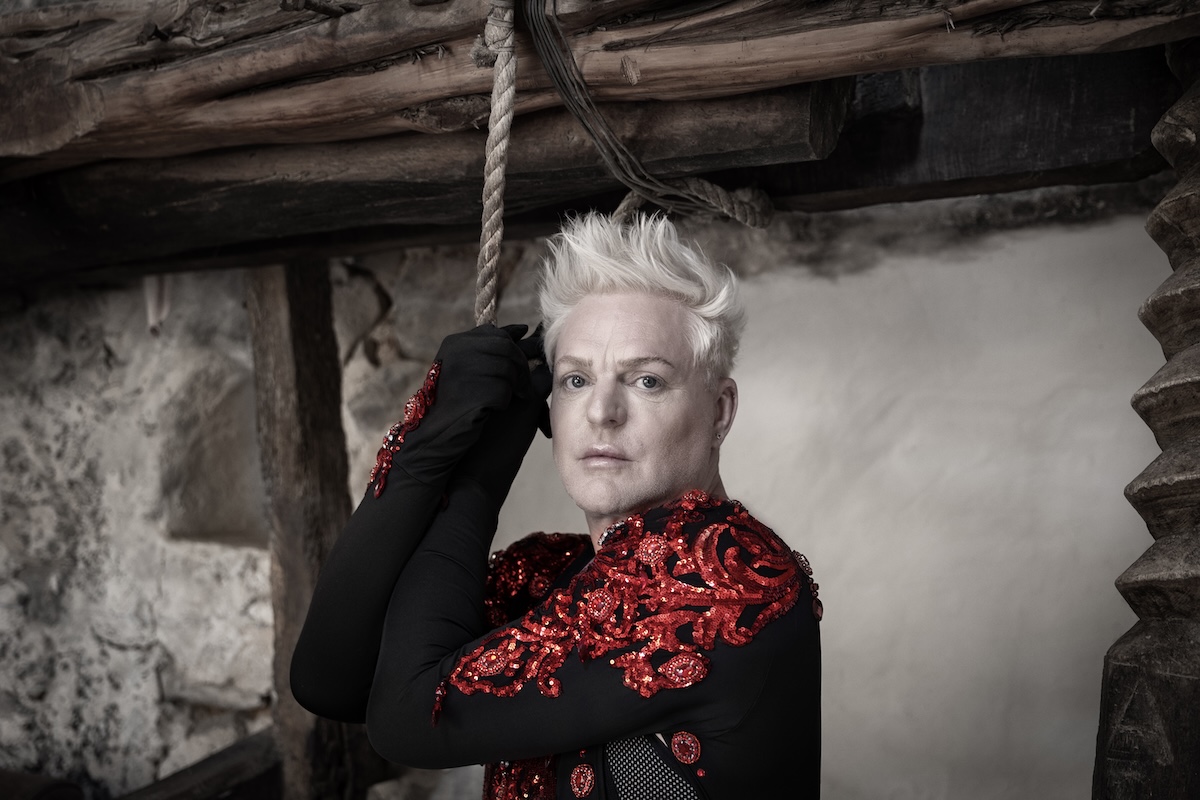
Freshly bleached and lipsticked, Bell radiates positivity when we connect. His arms are dotted with sticker-style tattoos, and his mood is as buoyant as his new music. The last time we spoke, it was early in the pandemic and tension hung in the air. (Not between us but everywhere.) Now, the vibe is lighter. Bell knows he’s made a strong album, and it shows.
Bell has been on my mind recently, especially after a visit to the Chateau Marmont to interview Greg Gonzalez of Cigarettes After Sex for SPIN’s March 2025 digital cover story. It brought back memories of my first visit there in the early ’90s, when I interviewed Erasure—wide-eyed, inexperienced, and starstruck. I remember wandering the site, stunned that I was in a place where “real” stars stayed. I tell Bell this, and he laughs: “I didn’t realize what a big deal it was to stay at the Chateau Marmont. We weren’t in the penthouse or anything, but we were there quite a while. I just took it as another hotel.”
He’ll be seeing more hotels soon when the Ten Crowns U.K./Europe tour kicks off May 1. Just before diving into the press and travel whirlwind, Bell and I catch up to talk about the new album and passing the gay icon torch to the next generation.
What makes a song an Andy Bell song versus an Erasure song?
To be honest, I don’t really know. Because [fellow Erasure bandmate Vince Clarke and I have] been going for so long, our 40th next year, we’re symbiotic. Working with Vince, the character has been formed already. In some ways, I’m very open with Vince as far as you can be, but with other people, I feel a bit freer. Because Vince and I are so close, it’s almost like it’s one person writing the songs.
When you’re one-on-one with a producer, it’s like a seductive technique. I feel like you always fall in love with the person you’re working with. But with Dave, because he was a fan as well, I didn’t feel like I had to be on my best behavior and be all correct in the studio. In some ways, I found it easier because it was like a pressure lid was taken off. I’d be sitting on the sofa writing the words after doing the melody, and they flowed quite easily.
How was working in Nashville different for you?
I was a bit scared because of all the churches everywhere. You feel like—not that you’re under surveillance—but you have this feeling of when you’re a kid and you have to go to Sunday school, and that kind of thing. That comes into the music. At that time the elections were underway in the U.S., warming up to it. There was all this vitriol flying around. One of the drag artists had been banned. I was feeling pretty pissed about it, so I just wanted to make a circle for all the people, to be all-inclusive.
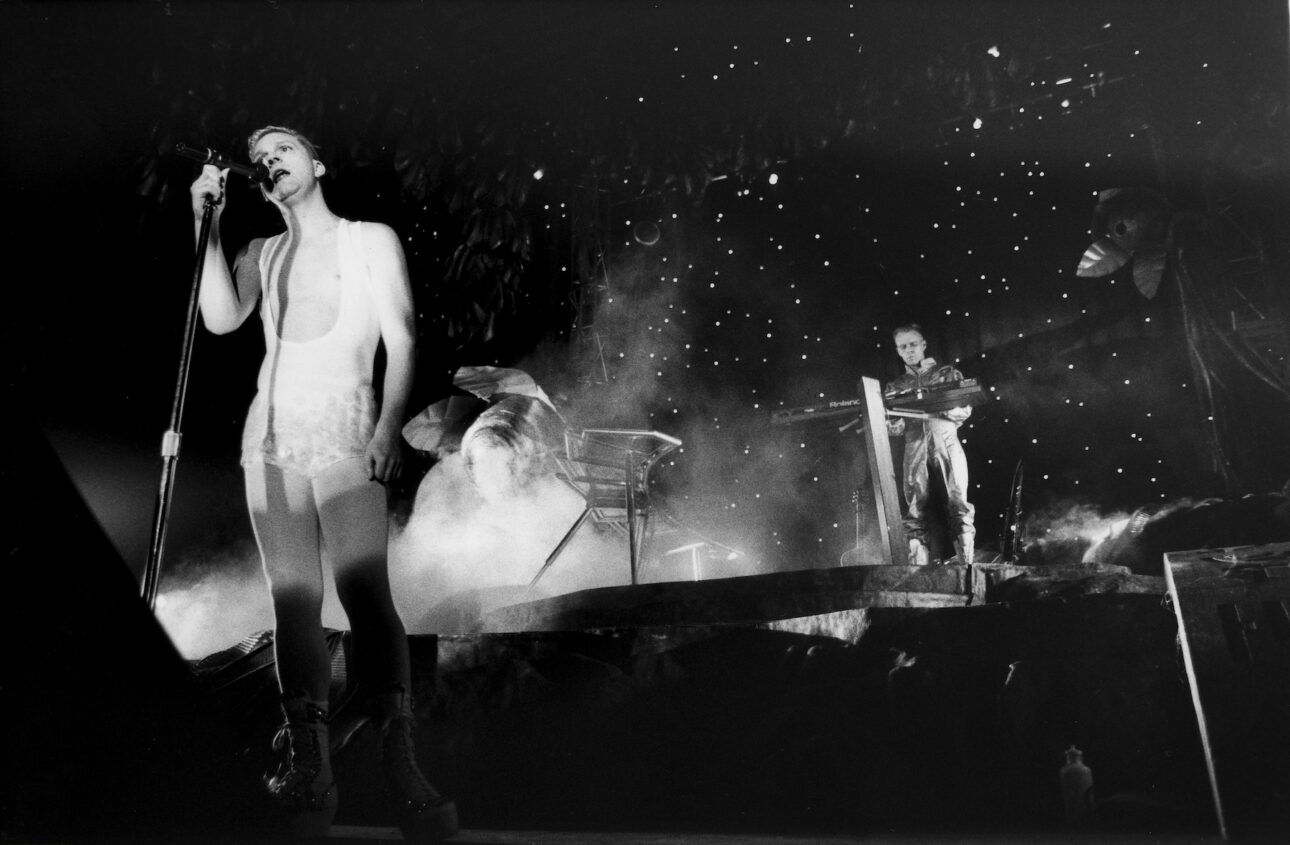
Did you have references for the album?
Not really. One of the first songs, “Lies So Deep,” was written as a Whitney Houston–type verse when she made her comeback. I always imagine how other people would sing them. The chorus is what Stevie Nicks might like. Then I thought we really need a ballsy woman to sing on the song with us. We asked Beth Ditto, and she couldn’t do it. We can’t get Alison Moyet because we’d have to write from scratch together. Then Dave suggested Sarah [Potenza]. When she did it, I was like, “Wow, it fits really well.” It’s a song about people getting married. Because you wear a veil when you get married, people are going on about, “They shouldn’t dress up like that, Muslim ladies, because they’re hiding their face and stuff like that.” It’s all these stupid rules everywhere. On the chorus, it’s about getting heart broken and you’ve put this varnish around your heart, and it’s time to crack the varnish off. The heart is part of your breathing apparatus going underneath the sea. I just take things from everywhere and just stitch it up.
You just referenced all female artists.
I was thinking about that last night as well, because I did a playlist for Sirius and it was all female. I’ve always loved female singers. Because I think my own voice is neither male nor female. I’ve been aware of that because we had this class in school where we had to pretend we were being questioned by detectives. It was on those old cassette recorders. When they played the voices back in the classroom, I didn’t even recognize my own voice. I thought, “Who’s that? That sounds like a girl,” and it was me. I had this thing that I was never going to sing male or female, or black or white. I don’t know if that’s true.
I always rehearsed to female singers when I was younger. I had that higher register. My falsetto was never as good as Jimmy’s (Somerville) or nowhere near Sylvester so I’ll sing with Alison Moyet. The female singers just had much more of an influence on me. From the beginning I was in love with the Ronettes, totally head over heels, which led to the Supremes, which led to “Denis” by Blondie, because they were very much that girl band before they had girl bands choruses.
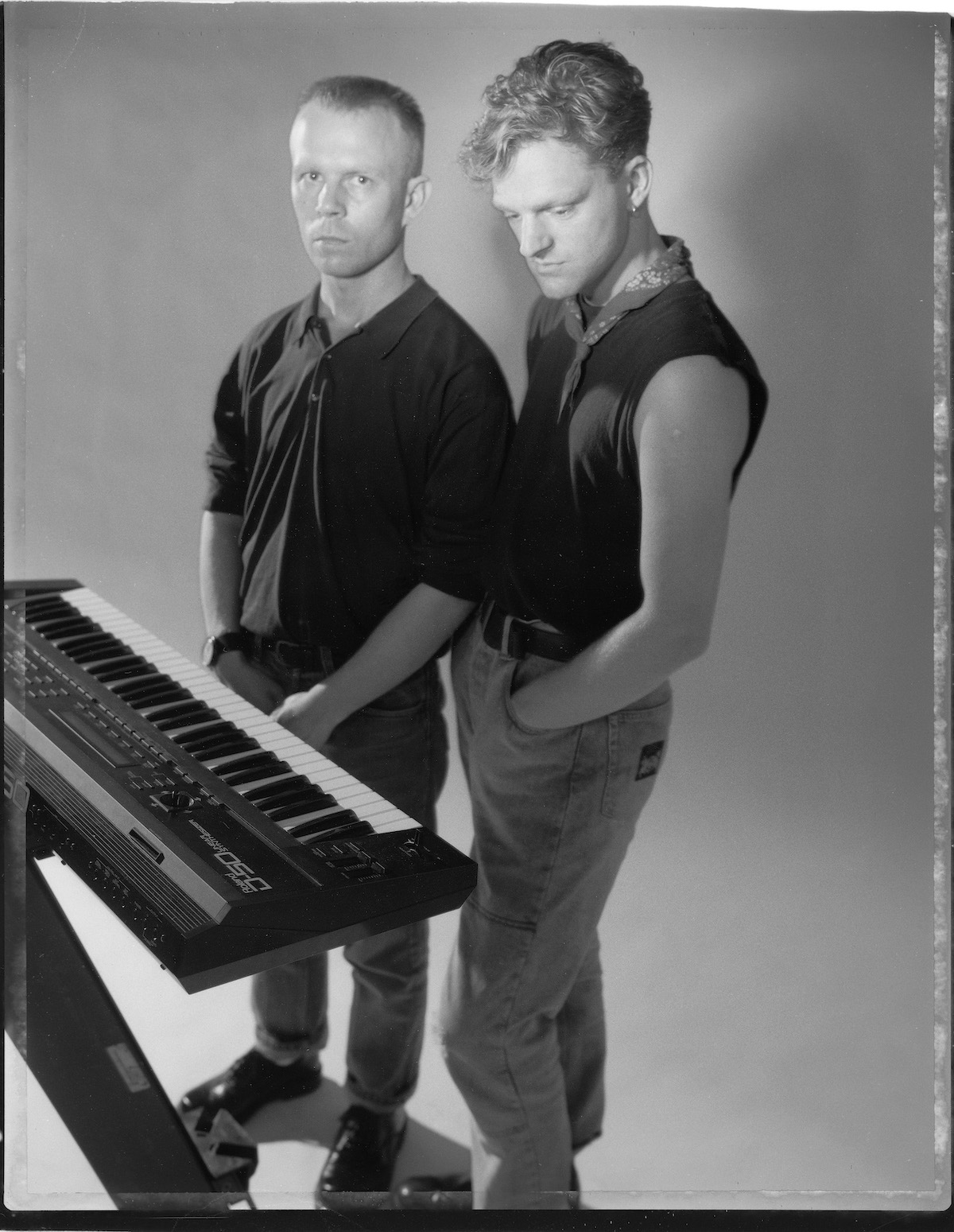
You have a song with Debbie Harry on Ten Crowns. How did that come about?
She had the Hollywood glam look without copying anyone. I would say the only person she was anywhere near was Marilyn [Monroe], which she kind of developed into her backstory a little bit anyway. But I was just totally enamored, which is maybe a gay man’s rite of passage. I bought a packet of hair bleach after seeing her, and bleached my hair all white and went to school with “Debbie” emblazoned across my chest. She’s such a great artist. Another person who I feel like I’ve been listening to my whole life.
I’ve met her quite a few times. The first time she came to see us was on the Red Hot + Blue video set when Vince and I were doing “Too Darn Hot.” She did the track with Iggy Pop [“Well, Did You Evah!”], and David Byrne’s wife was directing our video. They said, “Oh, someone’s come to see you.” I looked around, and it was her coming through the lights. I could not believe that this lady had deigned to come and say hello to this little boy. For me, that’s how she’s been ever since. To have someone like that in music is so refreshing. I don’t have that many friends in music. I would have counted Kirsty MacColl among pals back then, maybe Paul from OMD, but not really that many. We weren’t that close with other musicians.
Why do you think that was?
Maybe you’re too immature and too full of yourself when you’re young. Jealousy is so ugly, and I can’t help myself sometimes. I hate it if ever I see or feel that emotion come over me, because you cannot control it. You can be aware of it, but once as they say it “rears its ugly head”—because it is ugly—you can tame it and you can learn. As your ego gets more under control, hopefully it goes away and you become less concerned. It’s only about comparing yourself to other people. But I was terrible.
We have evolved because there is less emphasis on “winning.” Again, it comes down to jealousy and competitiveness and of course we all want to win. We all want to be the best. But if you’re not the best at something, just admit it. You can’t be the best at everything. Why have you got to be the best? We all have ambition. We all want to be good at doing stuff, but we should be allowed to fail and help people that fail. Don’t demonize them.
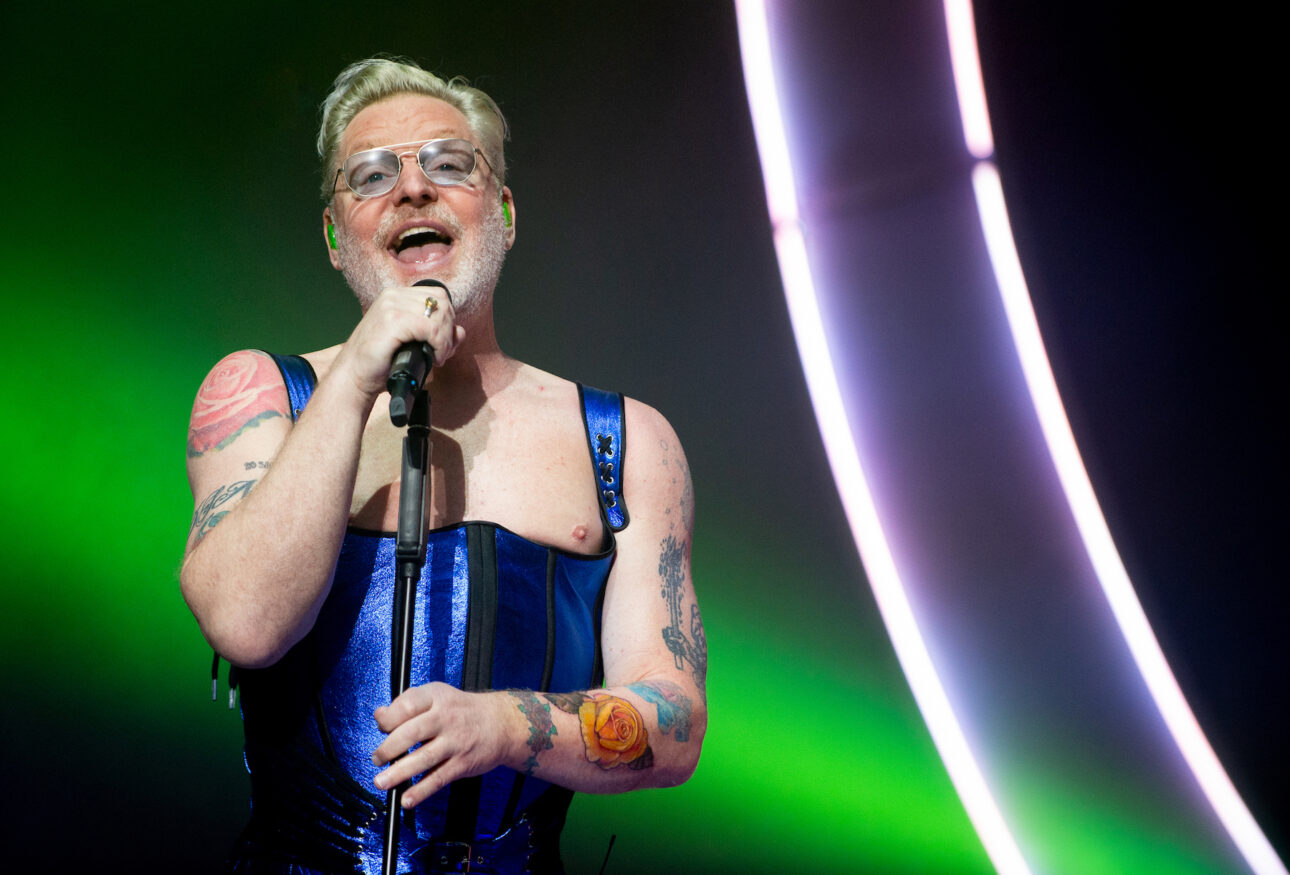
I saw on a documentary recently that gay musicians in the ’80s didn’t acknowledge their sexuality or create a community with their peers. What are your thoughts on that?
The ones that hid are the ones that made it. It doesn’t send a very good message to people, because that’s what we do all the time. We reward the people that follow the rules. We reward the people that bow to the authorities. It’s really funny how [trans people] are not allowed to have [their trans gender] on your passport, then here in the U.K. there’s this whole system of names like Lord, Duke, Duchess, Marquess, Viscount, and they’re all made up. It’s not to do with gender, but it’s to do with rank.
I was brought up in a Christian school. Once a term, you went to the cathedral, which was actually really beautiful, the second oldest in the U.K. I loved the hymns. I loved the ceremony. I always go there when I go home. But at the end of the prayer, in the Anglican Church, you always say “Amen,” which means “unto all men.” If you’re not addressing everyone, if it’s not “unto all men and everybody,” then you can’t say “Amen” at the end of a prayer anymore. So don’t say it.
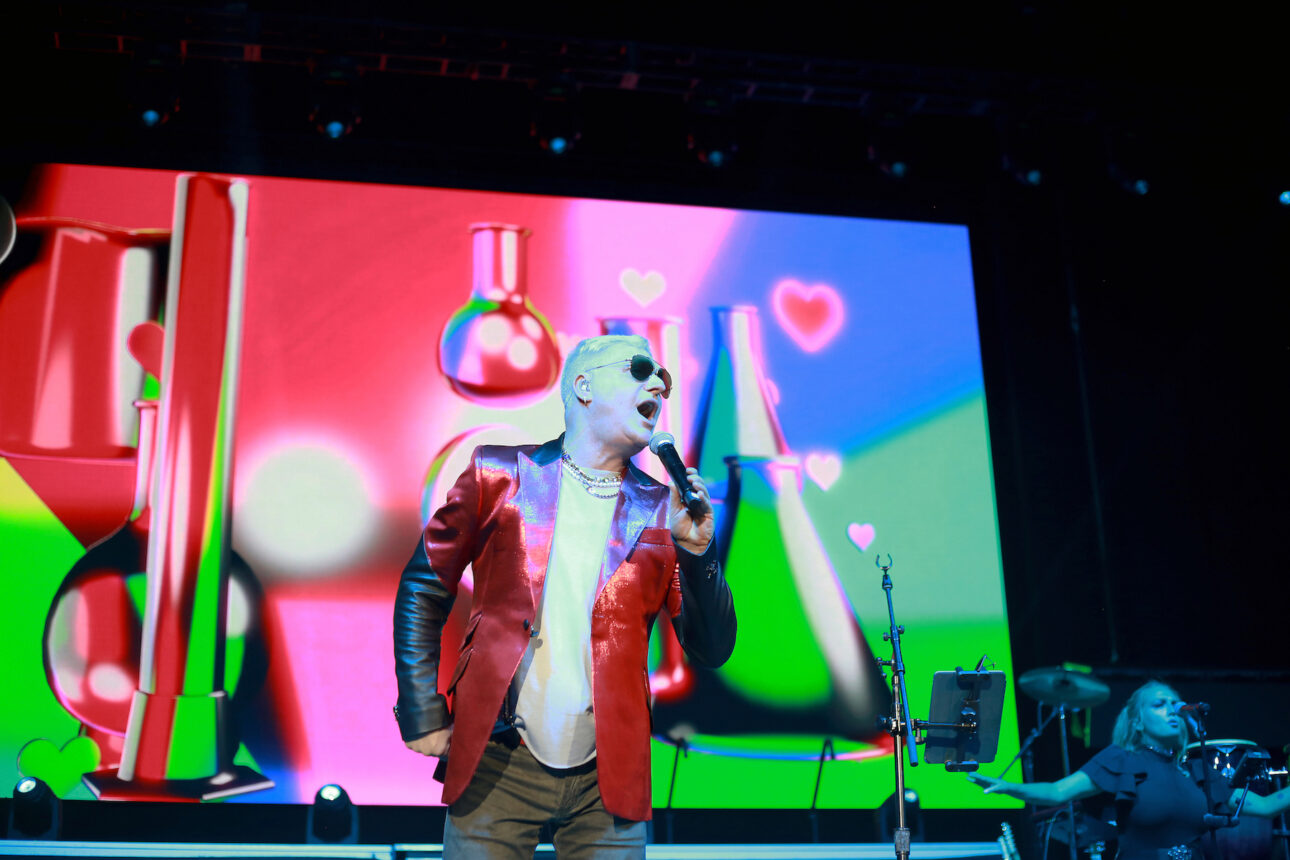
Considering how far gay rights have come, what do you think about the regression we’re experiencing?
It’s all bizarre. The whole thing is bizarre. We’ve already played our part. I’m getting on as well. You want to pass the torch. The torch has already been passed without them even knowing who I am. The kids don’t know who I am, because it’s a generation removed, or two generations removed. I’m not going to go there again and be this frontline person. But at the same time, you want to remind people of historical references and let them know it was a struggle. It always will be a struggle for somebody somewhere. You can’t take things for granted, because your medicine can be taken away overnight.
I asked Olly Alexander how he felt about being a figurehead for the queer community and he said he had a “complicated” relationship with it.
It is a lot to take on. For us, because it was new, it was uncharted territory. For them, the territory has already been charted. We’ve sailed a course. In some ways, it’s a bit more dangerous because they’re sailing without a compass. Or they’ve got a compass, but the storm is such an intentional thing that’s being thrown at them.
The thing that riles me the most is they’re doing it just for point scoring, whipping up hysteria. To them, it’s a game. To other people, that’s their life.
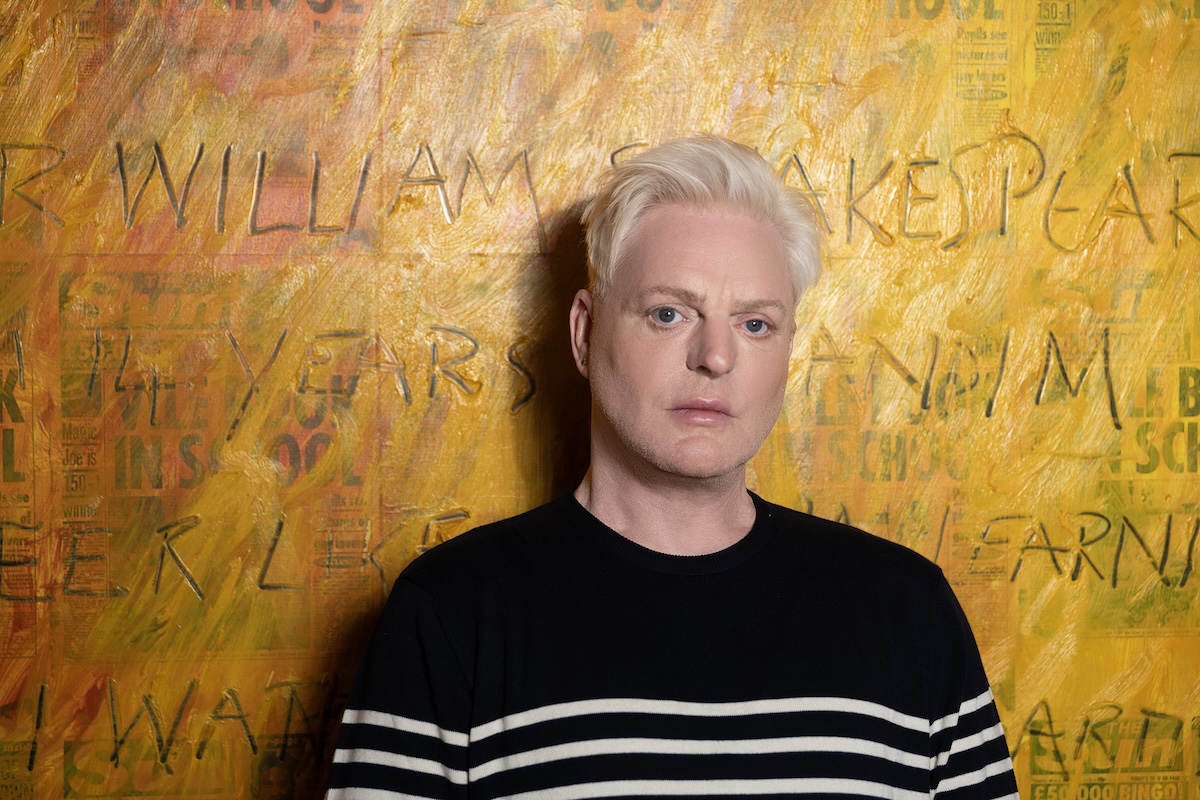
People certainly remember you. I received a ton of positive feedback when I sent out a newsletter with my 1994 Erasure interview.
In some ways it played into our hands. Because we didn’t get the maximum publicity, because we weren’t played on all the radio stations because of our stance, or because of being out there—for me anyway, that helped us, because it made you more precious. It was word of mouth. It was from nightclubs, which I used to love going to after a show and being in the DJ booth and getting in with the dancers. It was such a great time. Music was more homemade. The fashions were homemade. It wasn’t all branded. By not having the machine totally work, being a cog in there, we were very independent. That made people want to lift you up. That’s what I always want to do with the music and with the shows, is lift people up. With this new record, it’s doing that as well.
When I was a student, I used to work in a retail store with a five-disc CD changer. We always had an Erasure album in there and it used to really liven up the place.
Fantastic! I still get blown away. I live in America part-time. I hear Erasure in the store sometimes, or at the airport, like you said. I think they must have done tests where this music calms people down or puts them in a good mood. They do have it at Whole Foods in Atlanta on a Friday night, which is full of gay people doing their shopping.
To see our running list of the top 100 greatest rock stars of all time, click here.



